CIVIC INNOVATION PLATFORM.
CIVIC INNOVATION PLATFORM.
Project Introduction
The Nigeria Public Policy’s Civic Innovation Platform is an ongoing volunteer project created for a $50,000 grant given by the U.S. Embassy Abuja public affairs section to promote Nigeria’s democratic governance, unity and stability by improving government transparency and accountability, the rule of law, civil society capacity and engagement.
CIP (Civic Innovation Platform) came out of research carried out on policy making in Nigeria and the systemic issues the country faces in trying to move its democratic institutions and economy forward. Essentially, CIP uses a framework developed out of a holistic approach to problem-solving: systems thinking. The first principle of the framework is to use networks to connect Nigerians together. The metaphor of the network and network effects represent the interdependence of the country as a system of component parts.
The idea to create a network platform with each citizen, expert, business, or organization linked together to coordinate, cooperate, collaborate, and deliberate was informed through research on sustainability in extremely complex environments. The principles for this complexity were found in biology: swarm intelligence.
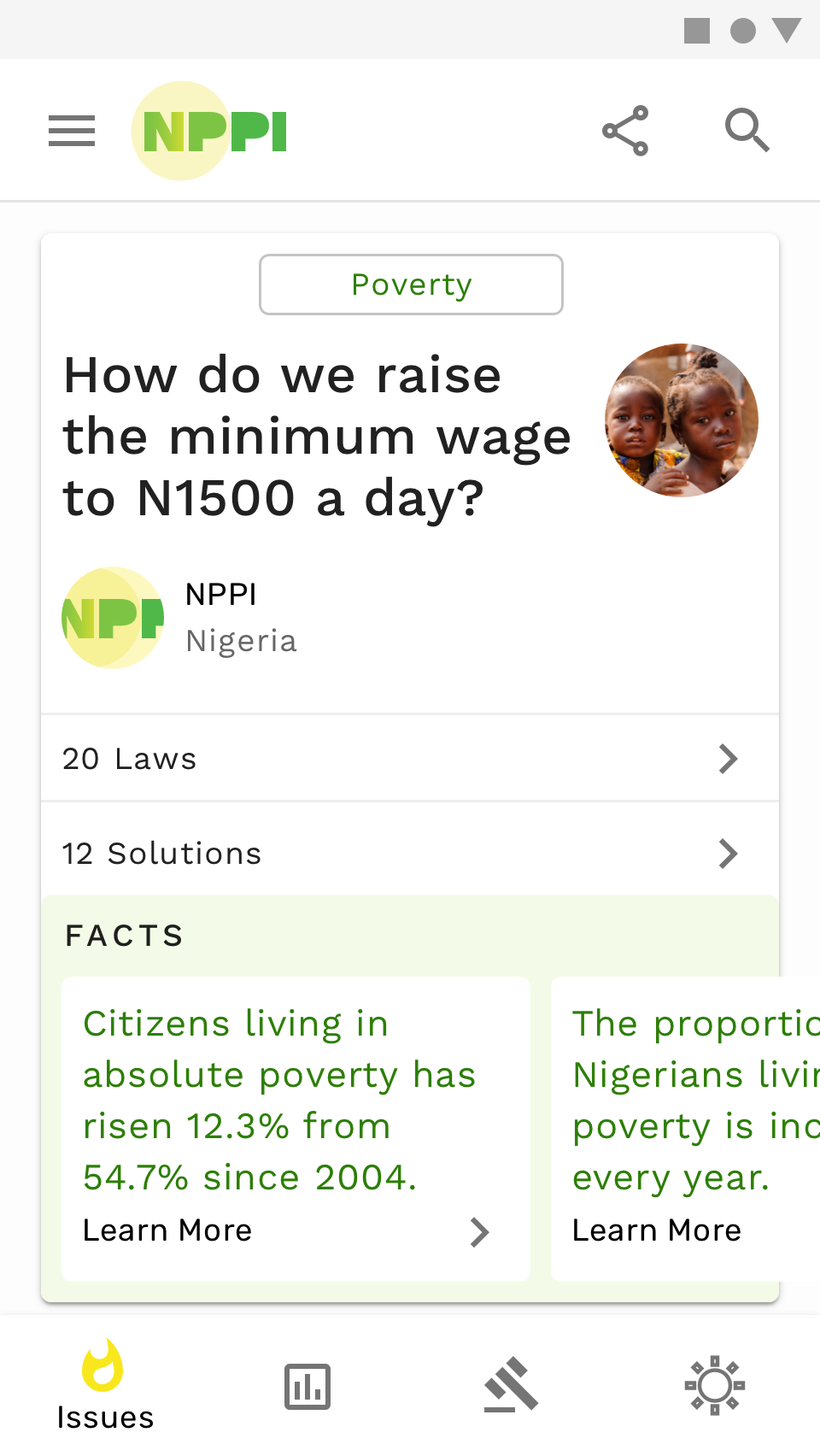
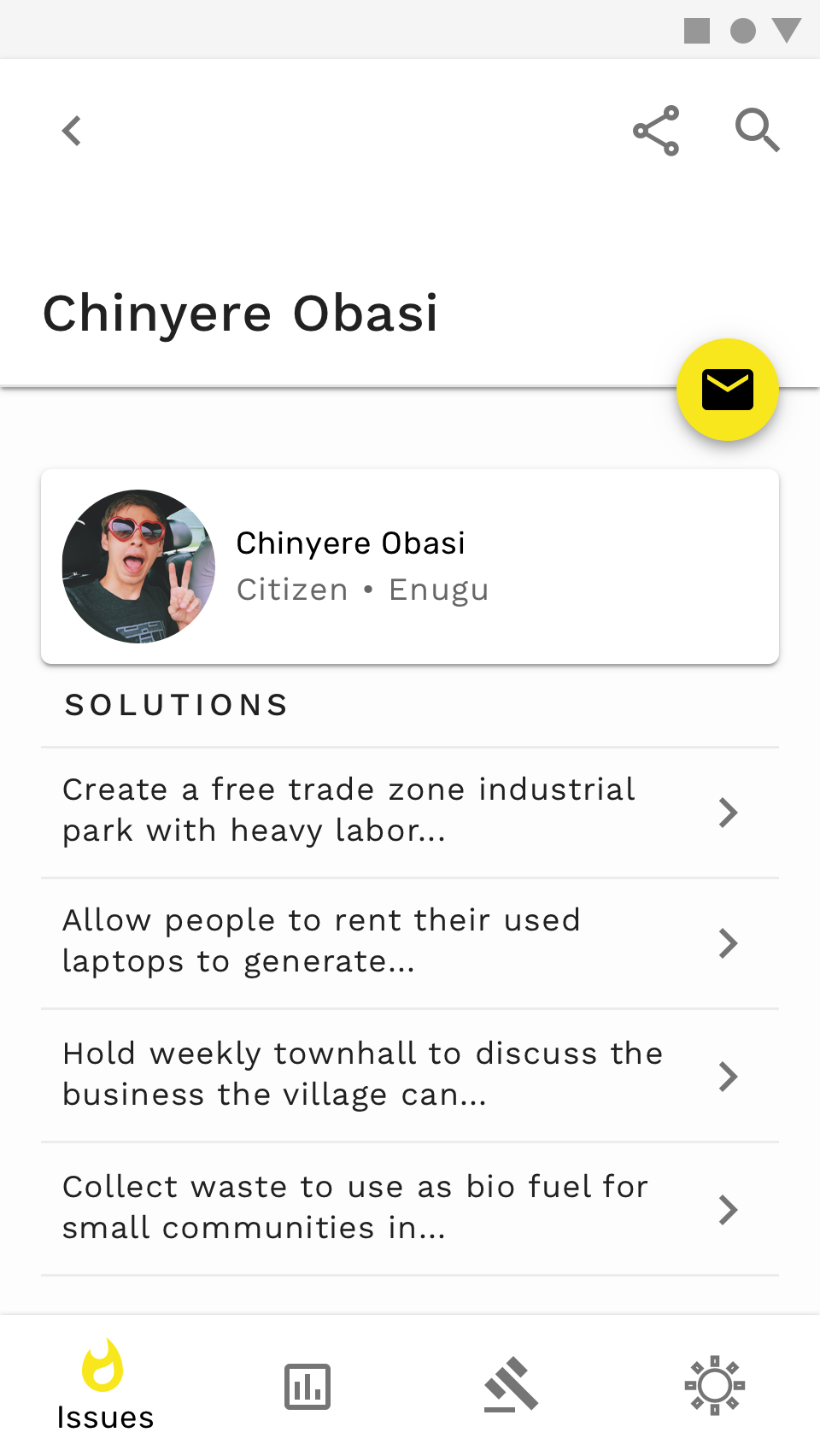
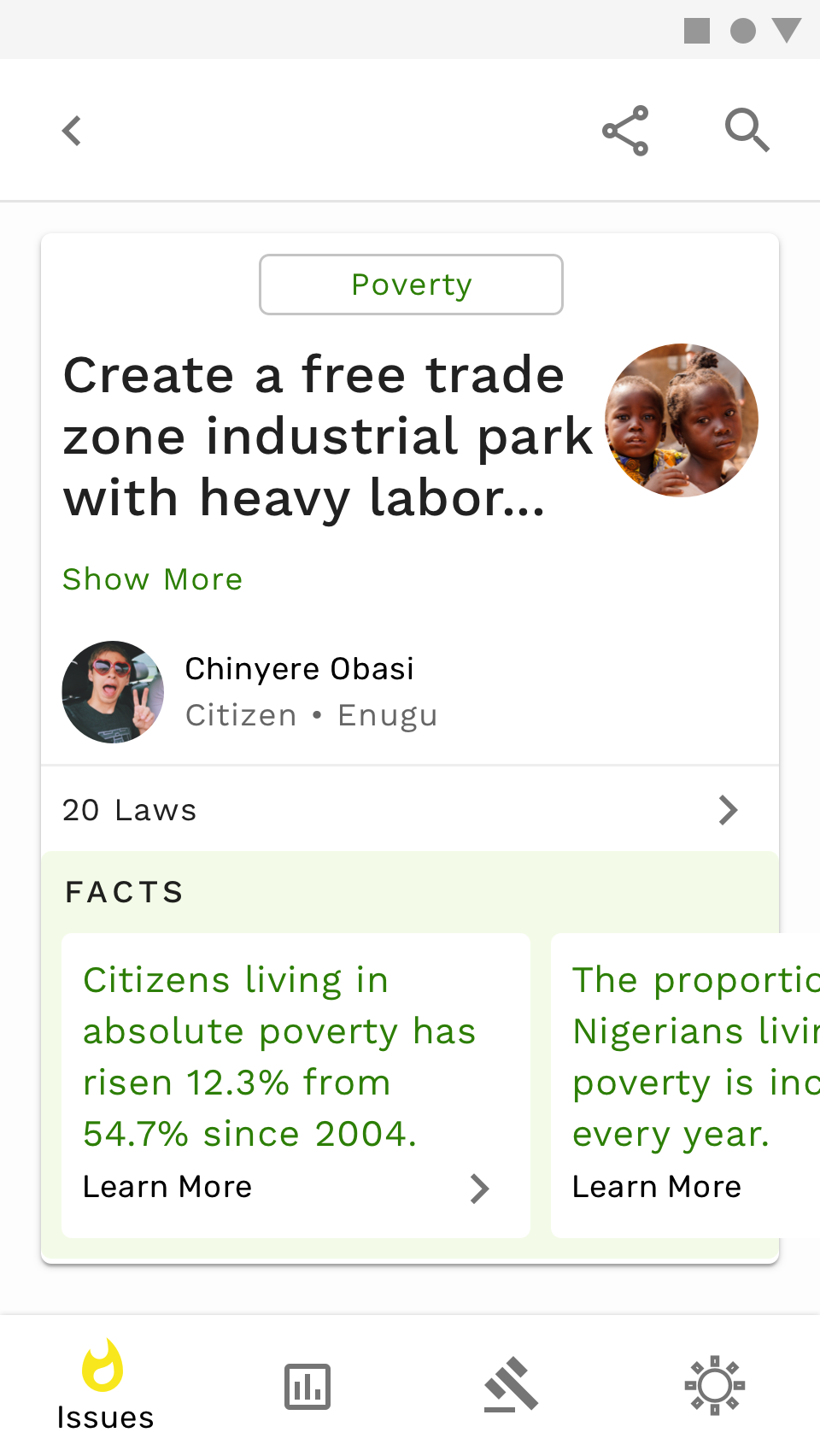
Project Team and Roles
The project team initially was comprised of NPPI founder, Obinna, and Davidson Eke a subject matter expert in Abuja, Nigeria. This is an ongoing project.
Responsibilities
1. Conduct research into holistic practices in design
2. Research policy issues, the Nigerian Government, prior solutions and systems, stakeholders, and sustainability
3. Write white paper
4. Brainstorming
5. Sketching
6. Interviewing subject matter experts
7. Wireframes
8. Utilize UI Component Library: Material Design
Project Goals
Submit a successful grant proposal.
Create a network platform for Nigerian citizens, businesses, organizations, lawmakers, and experts to coordinate, cooperate, collaborate, and deliberate on the systemic issues facing Nigeria around the rule of law.
Ideation
In systems thinking it is beneficial to pay attention to the interconnectedness of people, places, products, and processes. Listing all these parts and breaking them down to a set of components: issues, solutions, facts, and law. Their interdependence on the rule of law forms the basis for a hypothesis on how CIP would interconnect digital and atoms.

The design of CIP came through research conducted on policy issues and the idea of building a network platform. In this image, an early sketch of the screen shows the interconnectedness of people, issues, solutions, laws, and facts in a wireframe.
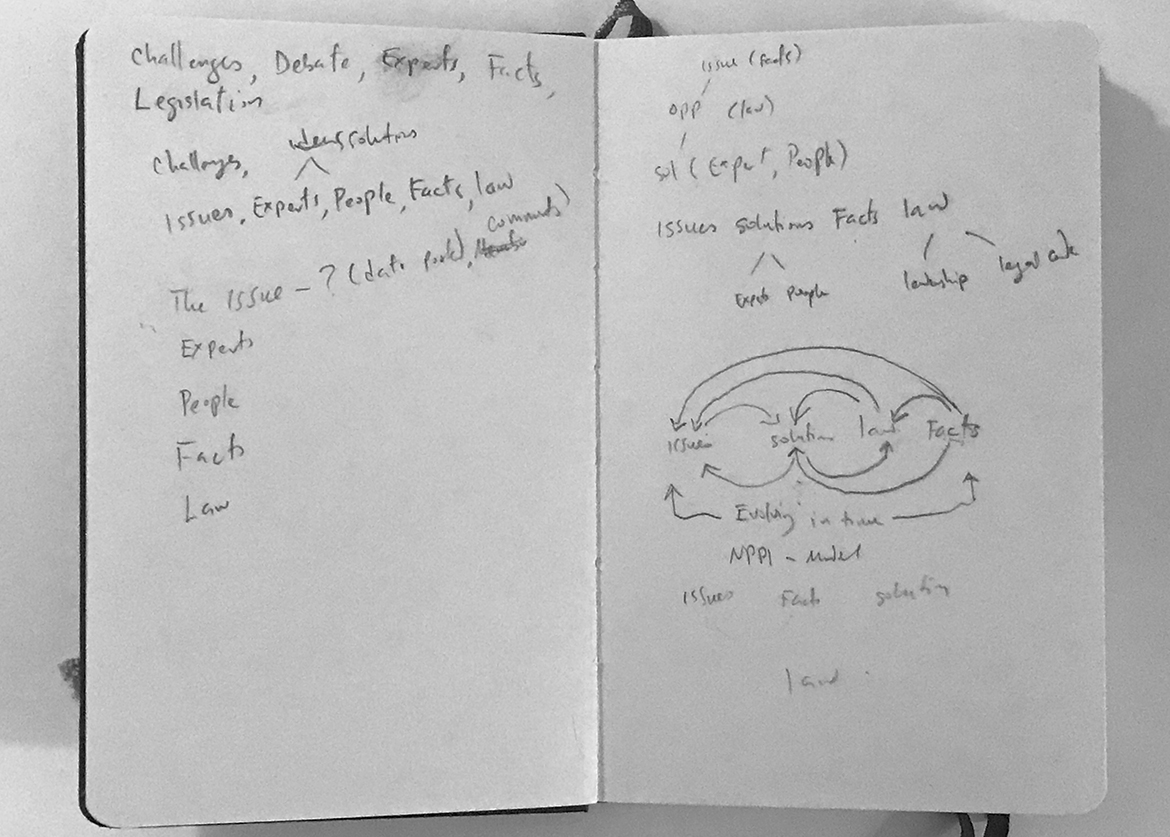
System interdependence diagram showing an iteration from the navigation and content buckets of issues, experts, people, facts, law to more simple navigation: issues, solutions, facts, and law.
Revision
As stated above this is an ongoing project. Watch this project to be developed further.
Work In Progress
Right from the start, it was determined that a UI Component System tied to a Javascript framework would be the best way to design better, build faster, and focus on high-value problems around creating a platform that would scale to the size of the three major cities in Nigeria: Lagos, Abuja, and Port Harcourt. If NPPI receives the grant, a round of user research with the Nigerian community in the U.S. and some in Nigeria would be carried out for further iterations.

The issues navigation tab is the primary tab users would engage and have interactions with. The interaction paradigm here is a feed.

A citizen's page where you see the proposed solutions she has suggested to the network community as a way of solving a policy issue.
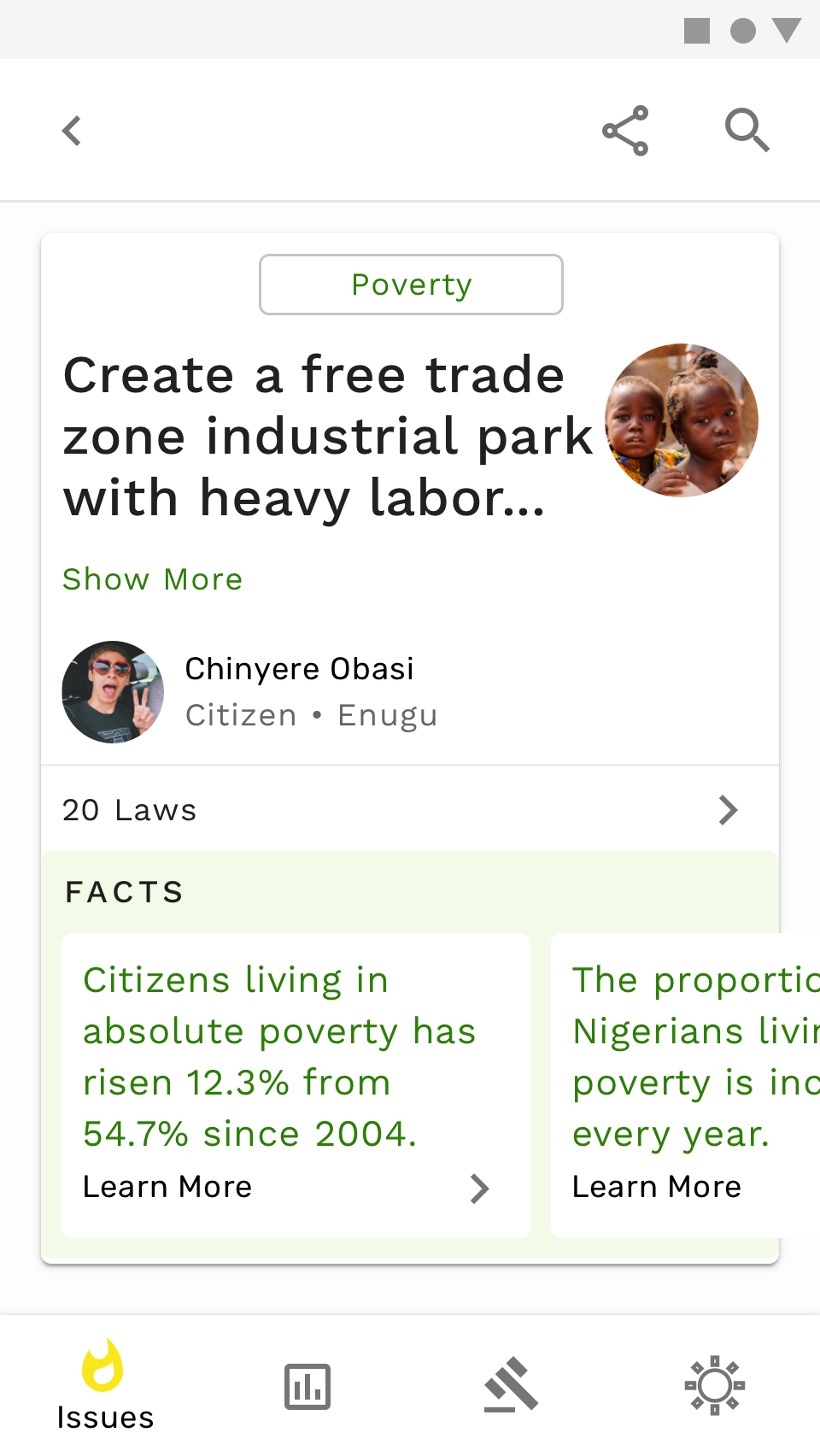
Citizen solutions are shown with the user type and their location. Related laws and facts further provide the solution with context.
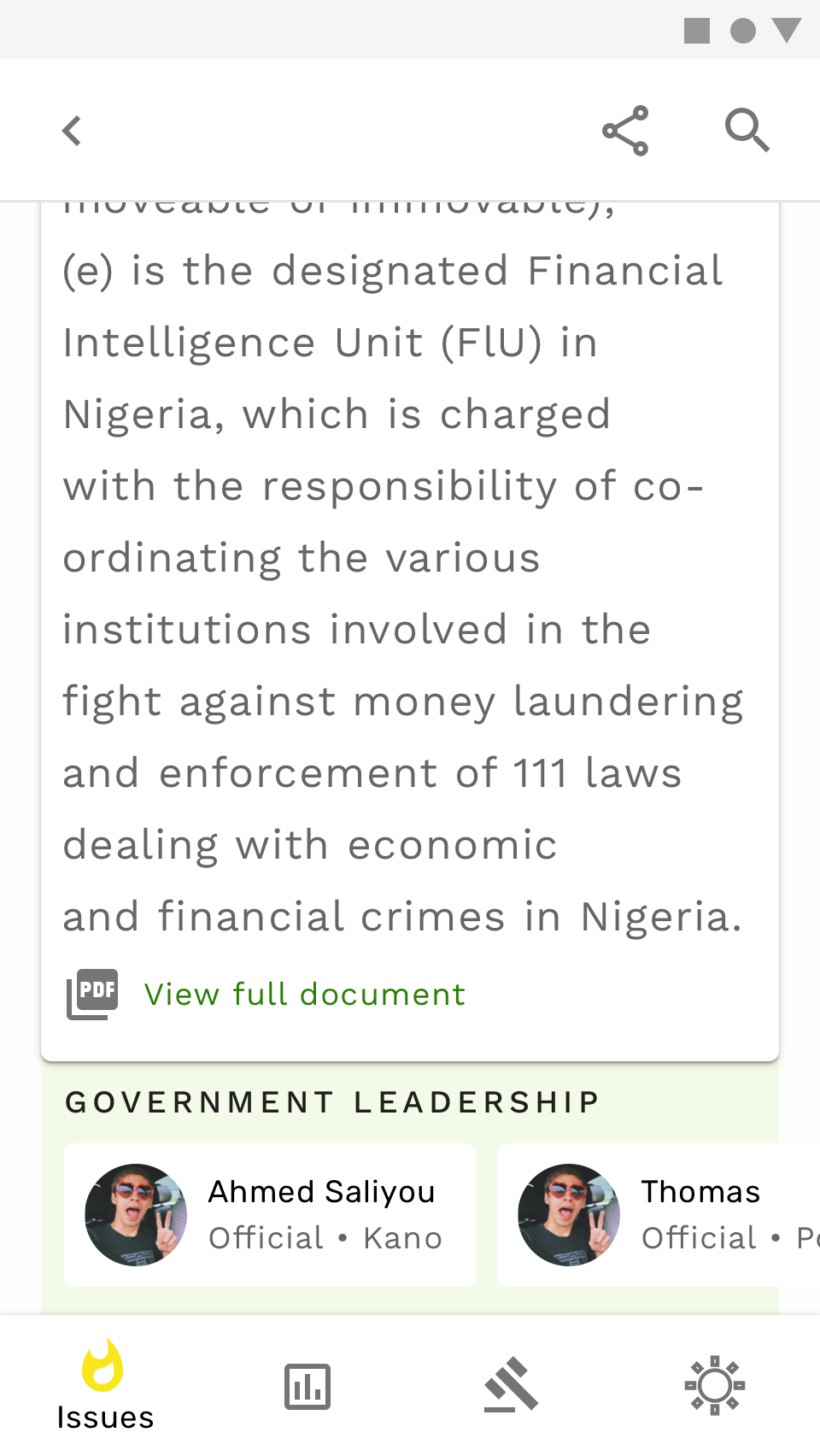
The user can view the government officials who voted on specific bills in the National Assembly and can contact that official.
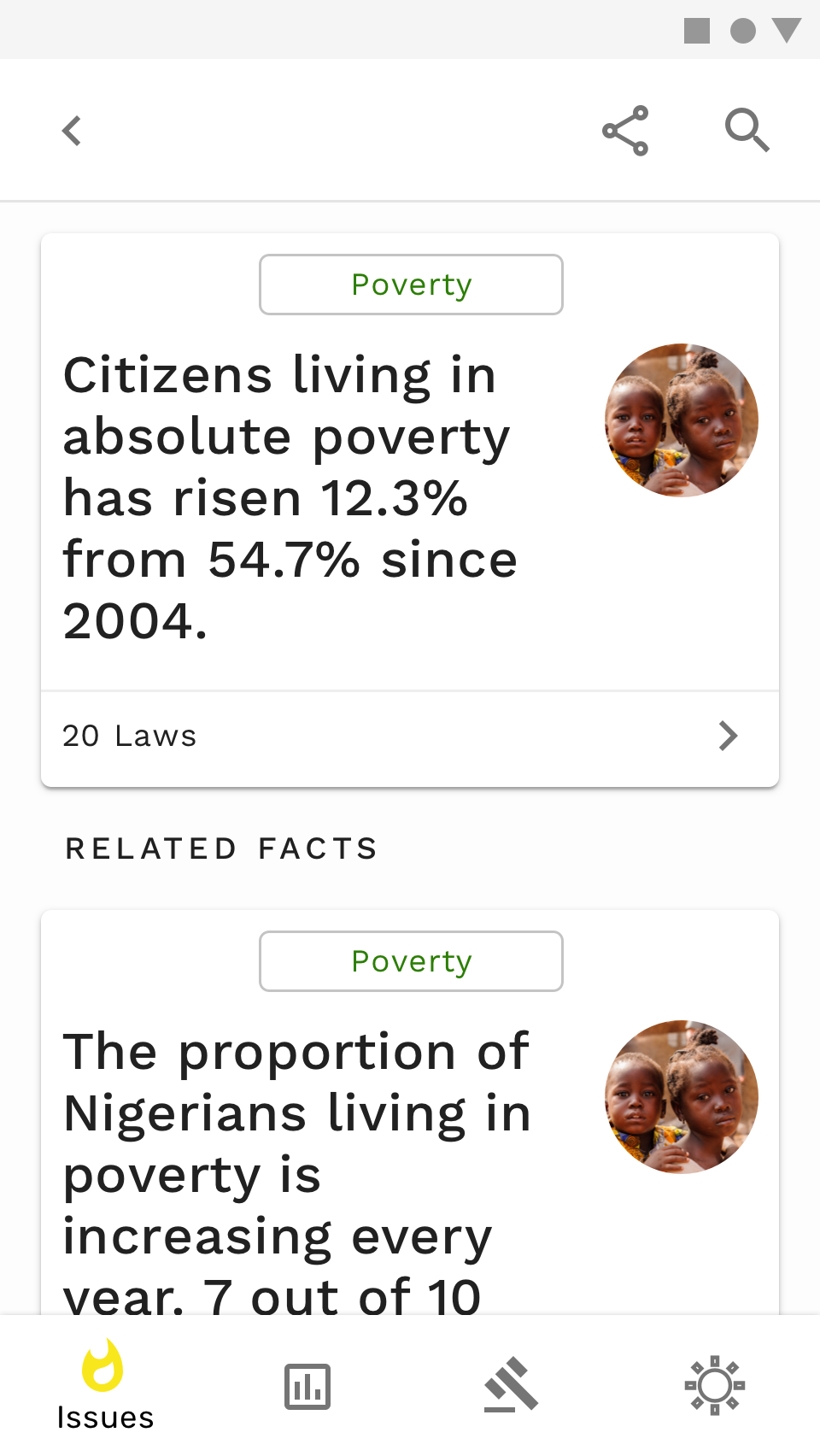
Facts illuminate policy issues their inclusion has high importance due to its interdependence with issues.
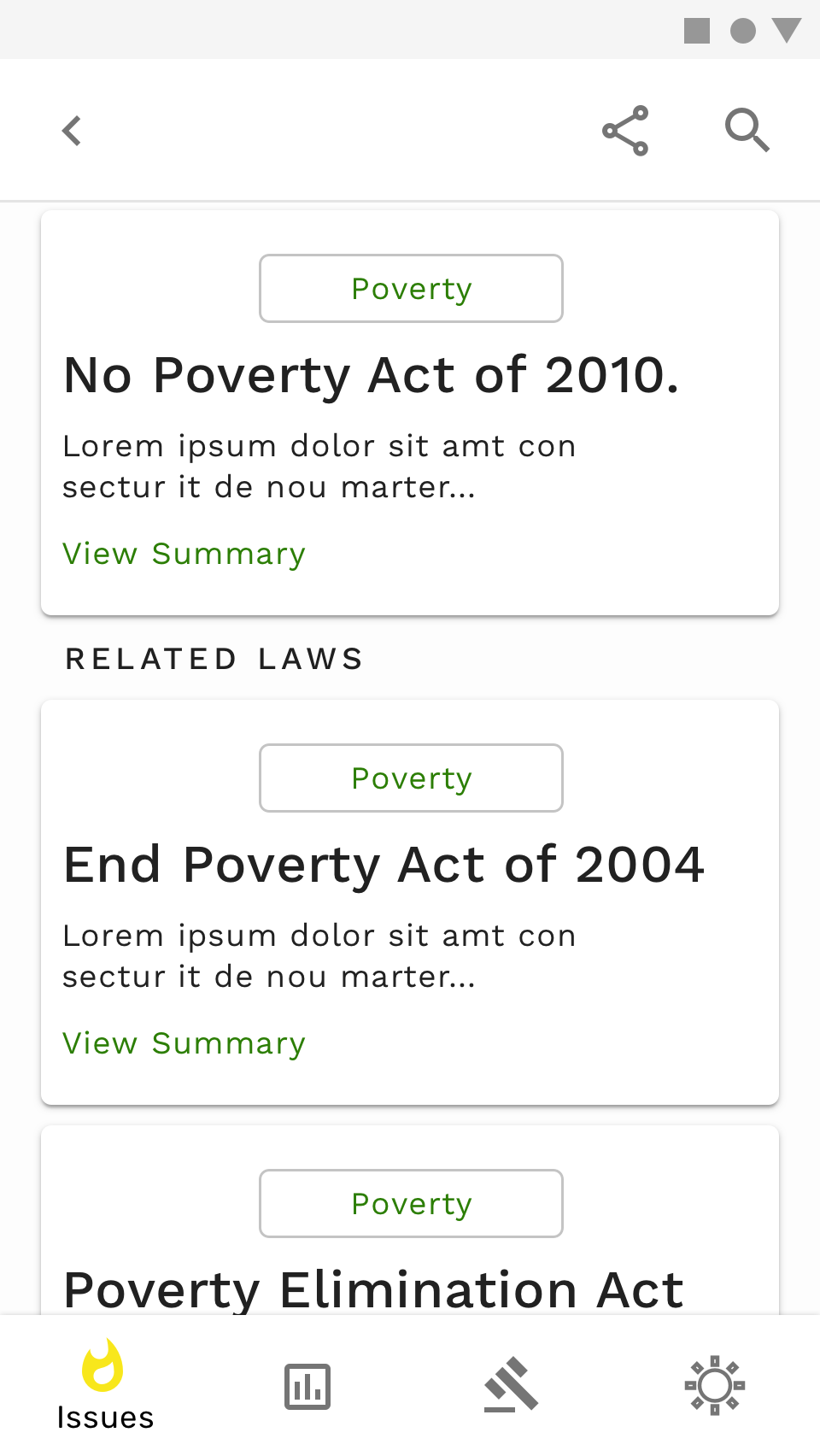
A running list of related bills and laws passed in the National Assembly which is the equivalent to Congress in the U.S.